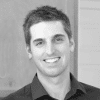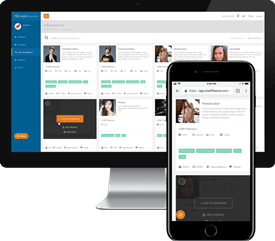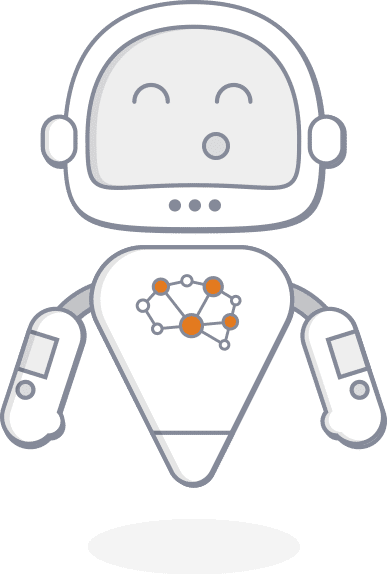Last Updated on May 14, 2021
Bobby Umar is an accomplished professional speaker (a 5x TEDx speaker) in the areas of networking, social media and personal branding. Inc Magazine named Bobby one of the Top 100 Leadership Speakers and he is also a business and personal branding coach. Bobby is an international author of three books, including a #1 best seller, and is a Huffington Post contributor.
As a Top Canadian Intellifluence Influencer who is interested in products related to health, career, parenting and entrepreneurship, and as someone who has a lot of experience as a business and Top Health Influencer, we were excited to speak to Bobby. Read the full interview here:
As a successful Influencer, how do you structure your day?
First off – it doesn’t come easy, so let’s just be upfront about that. It’s always a struggle. In fact, I can tell you just two days ago I turned off all my notifications on my phone because it distracted the heck out of me. It’s a major major issue. We always get distracted by what’s going on so I think that’s a big thing. Now, that said I’m always surprised myself in terms of how.. when I work hard how much I can get done in a day. That kind of blows my mind. I have bad days too, that’s okay. But in terms of how
I plan my day a big part of it is year, half year, quarter, month (month is the big one. What I want to do this month) month, week, and then day. By knowing that, you know I like to see my entire month on the page. As much as I have Google calendar I actually have a physical journal, it’s right here actually, and it has – one thing I love about it is I have my entire month on a page. When I see that I can plan out exactly how I’m going to spent my time weekly and daily. So I find that to be really really helpful. Then the second thing I do is really important is you can’t plan all of your time. You can plan eighty percent of your time because fires happen [and] things show up. One of the problems people have is that they plan so much for how they want their life to happen, they don’t plan for when life just happens. So you have to be able to have that buffer because life does happen.
What is the strangest influencer request you have ever received?
[Laughs] There’s a lot but the one that gosh, the one that was just a couple of days ago. It was more – it was actually to promote a radio station called the MAGA – Make America Great Again radio station and I was like “oh my god” and they said “we want you to promote our thing. We’ll put you on the show and we want you to follow all these MAGA things” I was like “oh man!”. First off I’m Canadian. Secondly, I definitely don’t support – I’m all against decisive bullying behavior. So for me that whole rhetoric does not align with my brand at all (heart-centered and empathy). I was like “there’s no way that I’m going to do that”.
It sounds like it was the wrong fit…
It was totally the wrong fit! You couldn’t even pay me to do that! They could offer me lots and lots of money and I still never would have done that.
What has been your most successful brand partnership?
Honestly I think the – good question. The best one actually was the diabetes one. I partnered with a diabetes product because I’m diabetic. By talking about my challenges with health and fitness and eating I was very vulnerable, I was very raw, and authentic. I think it really worked well. It was a great alignment because I was talking about things I struggle with and I already had the influence. They loved it because they got real stories from real people. Plus it had the influence aspect to it. From my standpoint that was probably the best one that I’ve seen. They were super uber delighted and now they want to do more work with me, so that one was actually cool. I like the fact they gave me a platform too to speak about things I don’t normally speak about.
Normally I speak about personal branding, networking, thought leadership, whatever. Talking about my health and my struggles that’s something I don’t really get paid to speak on but as an influencer I can talk about those things and actually reach a lot of people that are struggling. For the most part, yes. Sometimes you get a message from people saying “you know what, you’re supposed to be a thought leader and I don’t like how you make yourself sound bad”. I’m like “you don’t get it. Every single leader has problems, have dark days.” That s a rare thing and I was surprised at the pretentiousness of the note. Like really, “I thought you were so amazing and now you’re like this”. I’m like “whoa! where’s you empathy? I’m sharing my struggles with binge eating and how I feel bad about my body and it’s like oh my god you’re cutting me down for not being the perfect speaker on stage you want me to be”. Again that’s one out of every a hundred. It’s still one out of a hundred and you still hear their voices and sometimes the haters hurt more than the lovers, but that’s okay.
Yeah, ninety-nine people love you but that one [that doesn’t]…
[laughs] Be my friend! Love me! Yeah, you know, it’s hard.
What is your favorite social network?
Man… you know that’s such a hard question. I love social media and I love all the platforms. I’ve tried them all. They all work in good different ways. Instagram has the visual, which is amazing. Facebook, I’ve had some of the deepest, best, conversations of my life because it’s very focused. You want to talk about social justice or racism or poverty or children or parenting and you dive, dive, dive, [and] dive and you keep going, going, [and] going because when you’re at a party someone’s like “Hey Bobby!” and all of the sudden you’re distracted and you can’t get back on conversation. Facebook allows deep deep conversations. Twitter doesn’t allow that because it’s short tweets you can’t have that. It’s a different type of conversation. Linkedin is more professional.
I love Facebook for it’s deep [and] powerful conversation in my life, having access to people’s lives. But I also love Twitter for the voice I have, the quick nuggets I can share, the thought leadership I can learn from people. Then Linkedin, you know Linkedin has really changed in the last year. I would say that the majority of my time now has shifted in the last year. I used to spend most of my time on Facebook and then Twitter, but now Linkedin is number one by a wide margin.
Now I still can’t talk about things like politics, I mean I could but I choose not to. Still now I’m getting some really great traction, great engagement, [and] people are commenting and talking about the videos that I’m posting. Linkedin has really become a great place for people. I actually built a community and have lots of great friends. I’m loving all three but right now I’d say the one I’m really lovng – and Twitter as much as I love it, there’s a lot of vitriol there and it’s very hard to deal with. I f I could pick one right now, I’m loving Linkedin.
What are some issues your audience has and how do you help them overcome these issues?
I think the biggest that most people have, there’s a couple, but I mean the main one is the idea of feeling lost in your career, stuck in your business, [and] unfulfilled in your relationships. There’s a lot of people being lost, stuck or [feeling] failed on their path. I’ve been there too. People create a narrative where they are too afraid to leave their job. Once in awhile you know “my job sucks or I hate my boss but thank goodness for my wife and kids” or the other one “I love my job. I can’t stand my relationship, or worse, “I hate my job. hate my wife and kids, but thank goodness for hot yoga and rock climbing. So we pick this narrative that keeps us stuck because we’re so fearful of making that big change. What I would tell people is that every single one of us can aspire to better things in all areas of our narratives.
Not just work, people in your life, your spirituality, every aspect of your life that is important to you, your extracurricular pursuits, [etc]. If one part of it is not good that doesn’t mean you should just create a narrative where “well I’m satisfied with the other two, this one’s just bad”, No… work on all of them. So for me I’m working on my health [and] I’m working on my business and so for me a lot of people feel that way. So all my content when it comes to personal branding, thought leadership, relationship building, [and] business building it’s all about helping people go from good to great. To help them go from a narrative that’s not satisfying for them to something that’s more fulfilling. I’m all about joy fulfillment and happiness. If you can create success around that versus money, money is just a tool. If you create more fulfillment in your life that’s what’s what you’re going to look back on as your legacy and your story. You’ll say “yeah that’s how I was fulfilled?”. For me I want to make sure that I help everyone get there… to fulfillment.
Do you have any advice for an influencer who is just getting started?
Well I think a big, a lot of people don’t think is…who is you target. Number one, who’s the target you serve and then what’s your why statement. The why statement is great because it tells you the pain point worth revealing and it tells you who the target is and it tells you how you can address that target. A lot of people don’t think about targeting and why and purpose. That to me is an important thing because when I first started out I was targeting everybody. I was like okay here’s Bobby talking about parenting, here’s Bobby talking about politics and career coaching and entrepreneurship and all these different things. But really it’s better to focus on one thing.
My one main thing is called “Power of Connection”. From that there’s three main things, which is personal branding (connection of the south), networking (connection with others), and then social media (connection with the world). For me that’s kind of how I’ve laid it out but back in the beginning it was all over the place. So I think focusing your target and your why statement and who you serve and then creating strategically focused content directly to address that pain point to the people you serve can you a long way for influencers because then you build a tribe. Then they know this is what Bobby or Jill is going to talk about over and over again and they’re going to come to you for that advice. If you build up whatever it is, whether it’s shoe making or astrology or entrepreneurship you can become a thought leader influencer in any field as long as you do it right.
As a public speaker, do you have any advice that may help influencers feel more comfortable in front of the camera?
[Laughs] Yeah, I talk about thought leadership and there are three things about thought leadership. One is networking, good relationships – broad and deep. Number two [is] always generating quick great ideas and content. So if you’re Jay-Z, you’re writing songs. If you’re [someone else] it could be videos. If you’re Oprah you’re writing books. Number three is always working on your speaking and writing skills. So I think number one you should always be working on investing in your speaking/writing skills an an influencer.
The better writer you are, the better speaker you’ll be. The better speaker you are, the better writer you’ll be. That’s the first thing. The second thing I think hat’s really important is if you want to be a good speaker there’s three parts. When I do speaker talks to teach people how to speak better. I run a speaker mastermind group. The three things I tell them is, number one know your stuff, organize your stuff, [and] rehearse your stuff. You want to make sure you know your knowledge and be one of the most knowledgeable people on the topic so make sure you know your stuff. Number two [is] organize a way that’s clear to you so you can express it but also organize it for your audience so that they get it clearly from you. Number three [is] rehearse. If you’re very nervous you definitely have to rehearse.
Someone like myself, I don’t rehearse very often, except for my Ted talks. I was so nervous I had to rehearse three times but my normal speeches I typically don’t rehearse. Once I’ve structured it I want what I want to do. If you’re an introvert you need to rehearse your networking. If you’re awkward, you need to rehearse your camera work. Keep working on that until you feel more comfortable. It doesn’t go away to zero. The discomfort that appears – It doesn’t go to zero [and] it shouldn’t cause then you’d have a horrible attitude and then you’ll probably screw up even more. It’s better to have some butterflies because it shows you care and that’s normal.
That’s a third thing I would say is work on your mindset. If you work on the fact that it’s okay yo have nerves because you care then you’re focusing your eyes because you genuinely want to help them. Then it going to come authentic and more easy for you to talk about what you care about, what you love.
Note: Intellifluence Influencer Spotlight interviews are edited for clarity and time.

Andrew is the Head of Client Services for Intellifluence and has a background in communications. He is committed to helping brands get the most out of their campaigns and is the co-host of the Influencer Spotlight series.





